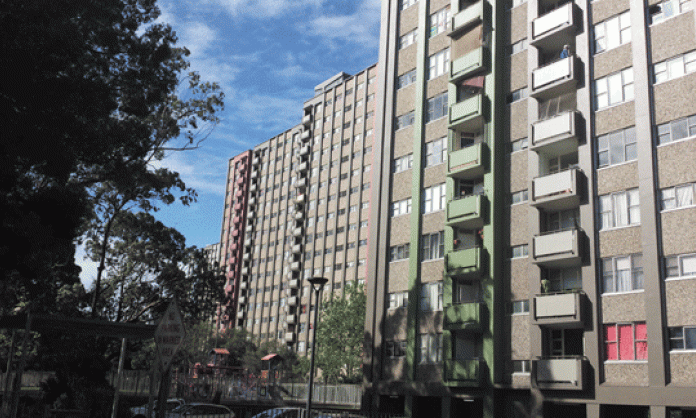Anonymous complaints will be used to evict public housing tenants under new laws being considered by the NSW parliament. Introduced by the Baird Liberal government, the Public Housing – Antisocial Behaviour bill is expected to become law with the support of the state Labor party.
Tenant advocates have rushed to respond to the wide-ranging changes proposed by the bill, which they say was drafted without consultation. “These laws are placing some of the most vulnerable social housing tenants at risk of homelessness”, Martin Barker from Inner West Tenants’ Advice and Advocacy told Red Flag.
If passed, the laws will introduce mandatory one-strike evictions for public housing tenants in a number of cases. By removing much of the NSW Civil and Administrative Tribunal’s discretionary powers, the laws will drastically restrict tenants’ right to defend themselves against an eviction application brought by the housing department.
Where some illegal conduct is alleged, the tribunal will no longer be entitled to consider the tenant’s circumstances in deciding whether to terminate the tenancy.
The proposals will also allow the department to give the tribunal a “confidential” neighbourhood impact statement as evidence of a tenant’s conduct. The department’s powers under its existing three-strikes policy will be expanded by a change which will mean that if it issues a so-called strike notice against a tenant, this will be “conclusive” evidence that a breach in fact occurred.
“These laws undermine some pretty fundamental principles”, said Barker, who regularly represents tenants facing eviction. “Allowing the tribunal to consider anonymous evidence will mean tenants won’t know or be able to question the person making allegations.
“In some instances, the housing providers will be able to give a certificate to the tribunal as conclusive proof that breaches of the tenancy agreement have occurred, and the tenant will have no way of challenging the certificate.”
The Women’s Legal Service NSW has written to social housing minister Brad Hazzard to warn of its “significant” concerns about how mandatory evictions will impact women who are experiencing domestic or family violence. Barker agrees that, if these laws pass, more women experiencing violence will be evicted to homelessness.
“The criminal conduct alleged might have been that of the perpetrator; the woman may have had no idea that it occurred or any control over it; and the tribunal will have no choice but to terminate the woman’s tenancy”, he said.
The proposed changes come amidst an ongoing battle over the sell-off of public housing in Sydney. “There’s a housing crisis in NSW, and the government needs to be seen to be doing something to address the 60,000 people on the waiting list”, said Barker. “But rather than doing what needs to be done – building houses – it’s taking a punitive approach to social housing tenancies and simply trying to make it easier to evict people.”









